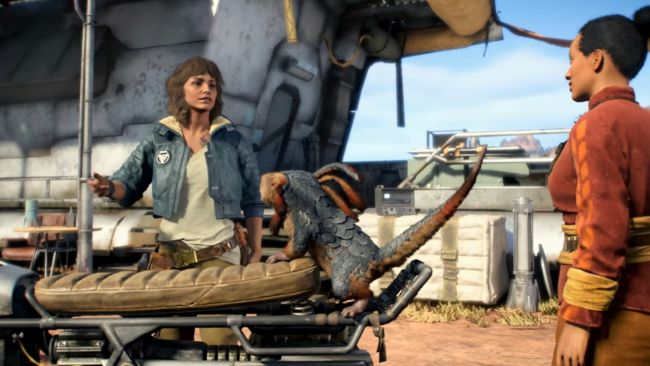Special Spain Sales Report: Is Nintendo Switch 2 losing steam?
Despite one of the most prolific Nintendo Direct's on record, the truth is that Nintendo Switch 2's first quarter on the market hasn't been the searing sun scorching the competition that some had hoped for. Rather, it had a great start, becoming the best console launch in the history of Spain, only to get stuck in a bottleneck of users who couldn't buy it due to the lack of stock that Nintendo suffers from around the world.
Even now, in September, they are still arriving less smoothly than demand 'demands', although the situation is not as desperate as it was at the beginning of the summer. Perhaps then, the problem, rather than a lack of stock, lies in the catalogue.

At Gamereactor Spain we have always kept an eye on the fluctuations and progression of sales in the physical market of the Spanish video game industry, using our own sources, and in Week 37 of 2025, from 8 to 14 September, the console sales data shows a stagnation in sales of Nintendo Switch family consoles, which until these days had remained the best-selling consoles of the year (adding Switch 1 and Switch 2).
That has now changed. PlayStation 5 has been winning the weekly sales battle against Nintendo Switch 2 since mid-July, in week 29. That was when PlayStation UK launched an offer on hardware that pushed sales from 4,000 to 10,000 units a week, which have maintained an inertia ever since. Now, of course, far fewer are being sold. This week, around 4,700, which added to the annual total to date adds up to 260,000 PS5 (adding Slim and Pro versions). In the case of Nintendo Switch 2, in Week 37 it has sold around 3,300, plus a thousand more of its "big sister" Switch 1. As of today Nintendo Switch 2 in Spain has sold 165,000 consoles. Nintendo Switch 1, even in its eighth year on sale, has just reached 100,000 consoles sold in Spain in 2025 alone.
Is the lack of stock in the first few months (so crucial in the current market situation) reason enough for Nintendo not to get back on its feet? Well, we're on less firm ground here, but with the data in hand, Nintendo Switch 2's catalogue of exclusives (the ones that could justify the leap to a new generation without hesitation) has been pretty sparse between June and September. Mario Kart World was supposed to be a steamroller that would keep us hooked for months and even years to come, but it's surprising to think that Nintendo has pushed it out of any recent stream, and there are even rumours (unconfirmed) that post-release content has been cancelled.
The other first-party workhorse is Donkey Kong Bananza, an outstanding game, certainly, but with the difficult task of making big numbers when there was still no stock in shops in July. The other first-party releases, with the exception of the odd Drag x Drive, are more of an upgrade or full DLC package sold at new release prices, and don't seem to be attracting much interest either. The most recent example is Kirby and the Forgotten Land, less than 2,000 copies in three weeks. Unthinkable for any first-party released on Nintendo Switch.
And then there's the issue of Game Key Cards. Since Switch 2's release, there has been a noticeable gap between the sales of titles that come complete on cartridge, such as Nintendo's own games and very specific third party games like Rune Factory: Guardians of Azuma or Cyberpunk 2077, versus what is sold as Game Key Cards. Titles like Yakuza 0 - Director's Cut (a temporary exclusive on Nintendo Switch 2 and a launch title alongside the hardware in June) have been selling an average of a hundred copies a week for months. The recent Star Wars Outlaws, even with Ubisoft's fantastic porting work, has sold less than a thousand in its first two weeks on Switch 2. And Cronos: The New Dawn, half that...
<bild></bild>
One thing is clear: Nintendo needs to start reviewing its current stance on physical distribution. The polls in Japan left no doubt: people are not going to accept Game Key Cards as a new strategy, and third parties need much more support (e.g. with Switch 2 development kits) to speed up the process of porting native versions to the console, without going through rescaling or backwards compatibility with Switch 1 to justify it. We're entering the 40th anniversary of Super Mario Bros. with perhaps the biggest year of Mario games in decades, and with the new console still struggling to get off the ground. Nintendo must react as soon as possible, in Spain and in the rest of the markets.